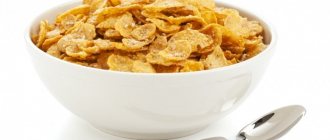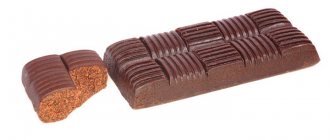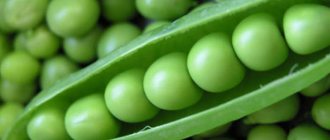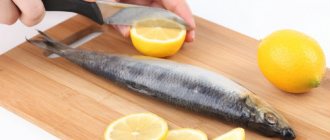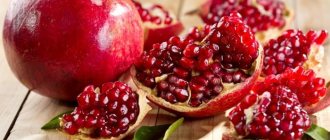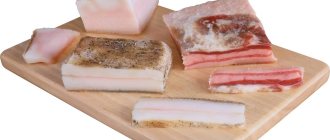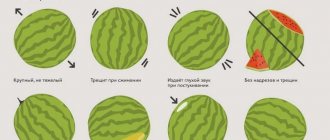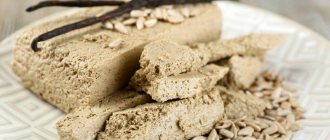All about children
07/17/2019 admin Comments No comments
So the event that everyone had been waiting for for so long happened - a baby appeared in the family. In the first days and weeks, young mothers are concerned about the main question: what can they eat after childbirth and what food is strictly prohibited.
What are the reasons for the strict prohibitions in the diet of a woman in labor? All products, along with mother's breast milk, enter the body of the newborn, and some of them cause an unpleasant reaction:
- allergic rashes;
- abdominal pain - colic;
- loss of appetite;
- changing sleep patterns.
We should not forget that minerals and vitamins were wasted during pregnancy. They just need to be replenished. Therefore, properly organized nutrition is so important, which in a short time will restore the mother’s strength and stimulate the normal development and growth of the newborn.
There is a list of recommended foods and those that are best excluded from the diet in the first week and the next two months.
Nutrition during and immediately after childbirth
Contractions affect the female body in different ways. Often, a woman in labor, spending enormous efforts, experiences hunger. What to do in this case? You should prepare in advance, at home, and take with you foods that are considered the most nutritious:
- nuts;
- "Hematogen";
- dried fruits;
- chocolate without additives;
- granola bars.
It is recommended to eat these ingredients between contractions. They will not only satisfy your hunger, but will also give you the strength that is so necessary during the birth process.
Don’t forget about drinking: a bottle of still mineral water will replenish the loss of fluid in a woman’s body.
But the diet for the postpartum period is compiled in each individual case, and in order to determine it correctly, you need to consult a doctor.

The diet of a pregnant woman and a woman who has already given birth is the most important thing not only for her health, but also for the baby.
First days menu
A woman’s nutrition begins in the maternity hospital, and it depends on how the birth process went.
If everything ended successfully, without ruptures or complications, the following are allowed:
- low-fat cheeses;
- porridge;
- whole grain bread;
- boiled lean meat.
Don't eat everything at once, keep it in moderation. And then no problems will arise.
If the birth of a baby was difficult or occurred with complications, then in the first 5 days the mother’s menu will be strictly limited.
Warn your relatives about this in advance so that they do not bring prohibited provisions to the maternity hospital. Failure to comply with this requirement may result in deterioration of the baby's condition or difficulties in milk production.
Although vigilant nurses often check the contents of the provisions brought, and “dangerous” food will not even reach the nursing woman.
If a woman in labor has had stitches placed on her genitals, the following foods must be excluded:
- bread;
- Raw fruits and vegetables;
- bran.
- porridge cooked in water;
- soups;
- kefir;
- cottage cheese;
- yogurt;
- sour cream.
Use fermented milk products only in small quantities.
Why this particular set? It will delay the formation of stool for some time. This point must be taken into account to avoid seams coming apart.
Nutrition after birth through caesarean section
In the first days after childbirth, there are very few permitted foods
And after a cesarean section, the young mother should adhere to an even more strict diet.
On the first day you should completely refuse food. You are only allowed to drink non-carbonated water or water with a small amount of lemon juice. The menu on the second day is a little more varied:
- broth from lean meat;
- porridge with water;
- meat puree;
- tea.
The main condition is that the food must be neutral and not have an aggressive effect on the stomach and other organs of the digestive system.
On the third day after surgical delivery, you can try other products:
- baked apple;
- steamed cutlet;
- cottage cheese.
If the body’s recovery after a cesarean section proceeds normally, then the diet becomes the same as for women who gave birth naturally.
The above recommendations must be strictly followed. Only in this case will strength be quickly restored after childbirth.
When all the complications are behind you and discharge from the maternity hospital is just around the corner, you should not relax, because a nursing mother’s diet must be followed at home, without neglecting the advice of doctors.
First month
When choosing fruits and vegetables you need to be especially careful - allergies may appear
Restrictions on what you can eat and drink will become even more extensive in the first month after your baby is born, especially if your baby is breastfed. The difficulty also lies in the fact that, along with the allowing and prohibiting list, it is necessary to maintain a variety and balance of the menu.
So, what food and drink can you safely consume?
- Mineral still water.
- Water-based porridge.
- Boiled beef and poultry.
- Steamed pork without fat.
- Vegetable stew.
- Weak tea.
- Hard cheese.
- Mashed potatoes.
- Steamed fish.
- Low-fat soups.
- Baked green apples.
- Ripe bananas.
To prevent the baby from suffering from intestinal colic and red allergic irritations on the skin, in the first month after discharge from the hospital, a nursing woman should avoid:
- chocolate and sweets;
- fruit juices;
- carbonated drinks;
- kvass;
- coffee;
- cocoa;
- baked goods;
- fried and smoked foods;
- salty and spicy foods;
- spices, onions and garlic;
- raw vegetables;
- most fruits (apricots, grapes, oranges, tangerines, pineapple);
- cucumbers and tomatoes;
- red berries;
- sauerkraut;
- radish and radish;
- ketchup and other sauces;
- alcoholic drinks.
The requirements, of course, are not simple, but it is necessary to follow such a diet. If these recommendations are violated, problems will arise with the production of breast milk and, accordingly, with feeding and the condition of the newborn.
Second month
The child turned 30 days old, every mother awaits this event. It is during this period that the baby’s stomach is more adapted, which means that the mother’s diet can be varied.
The diet of a nursing woman is allowed to be gradually filled with:
- eggs;
- cranberry juices;
- dried fruit compotes;
- dry cookies without filling;
- dumplings and dumplings;
- a small amount of nuts;
- honey and jam;
- milk;
- pickles;
- lentils;
- soy;
- beef sausages;
- low-fat sausage;
- butter;
- baked pear.
The prohibited list remains unchanged. It can be reduced only starting from the third month. Monitor your baby's reaction each time you introduce a new product.
General dietary recommendations
If you follow all the rules of a nursing mother’s diet, you can avoid the following troubles:
- child's tummy disorders;
- intestinal colic;
- physical and moral exhaustion of a woman;
- loss of strength of the woman in labor.
There are general recommendations that must also be followed.
- A woman should start her own nutrition after childbirth with small portions; it is better if the first courses are liquid.
- The introduction of a new product should be no earlier than two days after the first, and in small doses.
- It is better to try a previously unused ingredient during the day; by night the reaction to it will already be visible.
- If a baby’s reaction to a newly introduced product manifests itself in the form of skin redness, rash, anxiety and severe gas formation, it must be excluded from the diet for a while. When the baby has fully recovered, the product can be tried again.
- The drinking regime should also be adjusted: the daily fluid intake should not exceed 1 liter. Otherwise, milk production will exceed the baby's needs. The consequence is stagnation and inflammation. This rule does not apply to cases where lactation is reduced. If there are problems, fluid intake should be increased to 2 liters.
- A strict ban on diets immediately after childbirth. The baby is in danger of starvation if this event is not delayed for at least 3-4 months. It’s better to feel sorry for the child and not exhaust yourself for at least six months.
- There should be no nitrates or artificial dyes in the mother’s diet, everything is only natural.
- Thorough heat treatment of products before use: boil the milk and prepare cheesecakes from cottage cheese. As for milk that causes allergic reactions, goat milk will be the least irritant for the baby.
- Avoid raw foods. This primarily applies to red fish and herring, caviar and sushi.
- Forget sweets. For those who find it very difficult to fulfill this condition, we advise you to make sweets from dried fruits and jam. Healthy and tasty.
- Monitor the caloric content of food; the number of kilocalories should be sufficient for both mother and baby.
Chicken
First of all, a woman during lactation should consume more fresh young chicken meat. Poultry meat, and especially chicken, is easily digestible, quickly cooked and digested. It contains iron, a lot of protein, some essential vitamins and other beneficial substances. It also contains a minimal amount of calories. And it is better to boil, stew or steam such meat, since when frying, many substances turn from useful into useless, in addition, fried foods have a bad effect on the gastrointestinal tract of both the mother and the child who is breastfed.
The meat of young chickens is very healthy and tasty; it contains a lot of young protein, microelements, and this meat also combines a complex of special substances necessary for the growth of the body. But chicken should be eaten without the skin, as the skin contains a lot of cholesterol.
Is it possible for a nursing mother to eat shish kebab?
( 1 2.00 out of 5) Loading...
When relaxing in nature, many people cook barbecue. A woman who is breastfeeding needs to monitor her diet carefully.
But how can you resist trying a tasty and aromatic piece of charcoal-grilled meat?
Is it possible for a nursing mother to have shish kebab, or should she not relax and give up a tasty and beloved product?
Why you should be careful
If you ask a pediatrician about the possibility of eating kebab while breastfeeding, he will not recommend the dish for consumption. His arguments will be quite compelling, and you should definitely listen to them:
- Fried foods are not healthy foods, especially for women who have recently given birth. The immune system is still weakened, the body has not recovered after childbirth, and charred areas of meat negatively affect digestion.
- If kebab is prepared from pork and lamb, the calorie content of the meat will be excessively high and the cholesterol content will be increased. Fatty foods cause heaviness in the stomach, sometimes discomfort and pain are felt. The gastrointestinal tract will work in an enhanced mode, which can also lead to system failures.
- Everything that the mother eats goes into the baby's body during breastfeeding, and milk, supersaturated with fats, causes colic in the baby.
- Excess fat affects weight, which is undesirable for a young woman. And for an overly well-fed baby, this factor is completely harmful. Eating barbecue once, of course, will not affect your weight, but it can worsen your condition.
- The cooking method is also not considered healthy. To make the meat soft and cook quickly, vinegar, sometimes lemon juice or wine are added. To give it aroma and diversify the taste, all kinds of spices are added. This can affect the condition of the milk and cause colic.
- Spices and lemon are provocateurs of allergic reactions.
- Not everyone knows how to cook quality barbecue. The meat is often overcooked, sometimes it remains undercooked inside. Insufficient heat treatment does not kill pathogenic microflora or worm larvae. This diet is dangerous for the mother's health.
If we take these arguments as a basis, then it is better not to eat kebab. But it’s worth considering the problem from the other side, perhaps there will be an excuse for the dish.
Under what conditions is it permissible to eat shish kebab?
A mother needs to eat meat, but whether breastfeeding women can have barbecue is a controversial question. Here it should be resolved with reservations: you are allowed to try a little of it while breastfeeding, provided that it is prepared correctly and the risk of complications in the baby is minimized:
- For barbecue, which is eaten by a woman who is breastfeeding, only types of meat that contain a minimum amount of fat are suitable. Dietary rabbit and turkey are suitable, white fish, chicken or lean beef are allowed.
- A marinade containing vinegar, lemon and various seasonings and pepper is not suitable for soaking. A good alternative for sauce is kefir, apple juice, mineral water, you can also use onions, in this option the meat will be no less tender and aromatic.
- It is not recommended to overcook meat, but insufficient heat treatment is also unacceptable. Medium roast is most suitable, then the dish will retain its beneficial properties and will not cause much harm. To do this, you need to carefully monitor the preparation of the kebab and sprinkle it with water more often.
- It is better to eat shish kebab from any meat with fresh herbs and vegetables, this way the food will be absorbed better and the digestion process will be easier.
- In order for the food to be digested well, pieces of meat should be chewed carefully, slowly, then the digestive organs will more easily cope with the digestion of the fried product.
- Vegetables and herbs help with good digestion of heavy foods, so when eating kebab you need to add them, let them become the main dish. If the baby’s age allows, then cauliflower, tomatoes, and eggplants go well with fried meat; when the child does not tolerate these foods well, you can use zucchini or pumpkin, and bake apples well.
You should not experiment and try kebab until the baby is 3 months old and his intestines are replenished with the necessary enzymes.
How to cook
In fact, even the right marinade and lean meats do not provide a complete guarantee that the child’s condition will not worsen and he will not develop colic. After all, the cooking method does not guarantee that a piece of meat will not have overcooked or burnt areas.
But the problem of whether nursing mothers can have barbecue can be solved simply: when there is a desire, it is better to cook it not on the grill, but at home, on the stove, then the dish will become safer and healthier.
Shish kebab on a frying pan or grill grid
Chicken breasts should be soaked overnight in kefir. You can drop a little oil into a frying pan and fry the meat. It is better to eat it with fresh or stewed vegetables.
It’s even easier to do on a grid: the pieces are laid out on it and placed in the oven. At the bottom you need to place a container for the juice, which will be released and flow into it.
You can also cook shish kebab in a glass jar:
- meat is kept in kefir or mineral water
- the pieces are strung on small skewers, it is better to use wooden ones;
- skewers are placed in a jar; a regular three-liter container will do;
- sprinkle onions and herbs on top, no need to add spices;
- the jar is placed in a cold oven;
- After turning on the oven, you just have to wait about an hour.
Shish kebab cooked in a jar will be tender, juicy, and, most importantly, tasty and safe.
When concluding whether a nursing mother can have shish kebab, do not forget that this is not the kind of food that can be eaten often and in large quantities.
A large number of heavy ingredients can affect not only the mother’s condition, it can negatively affect the functions of the child’s digestive tract.
In addition to regular colic, his liver and pancreas will suffer. Therefore, one of the main principles when breastfeeding is restraint and moderation.
Find out if a nursing mother can barbecue
New mothers who breastfeed their children always remember some dietary restrictions. And when the warm season comes, and the temptation to go out into nature to cook aromatic shish kebab haunts them, they doubt whether they should eat such a pleasant-tasting product, or whether it is advisable to temporarily give it up.
If the kebab is prepared correctly and from products suitable for nursing mothers, there is nothing wrong with eating it. We can safely say that its use is even beneficial, especially in combination with other healthy goodies.
Why are nursing mothers afraid to eat different types of kebab?
This fear is completely justified by the fact that fried foods should be avoided when breastfeeding. Moreover, not only fried, but also fatty. Classic kebab has these properties to the fullest, causing fear before consumption among new mothers.
Most breastfeeding women abstain from fried and various fatty foods. And if they eat kebab, the body will definitely not feel good, because such a “shake-up” cannot have a good effect on it. The same can be said about specific seasonings and sauces with their addition, as well as about the usual seasonings in large quantities.
Of course, all components of spices, sauces, fried and fatty foods will quickly enter the milk. And, when a child consumes milk with such components, his health may deteriorate, since they provoke intestinal disorders, allergic reactions, colic and many other problems with the baby’s well-being.
Nutrition for a nursing mother: what is possible and what is not allowed during breastfeeding?
Igor Kon Maria Gmoshinskaya Ak. RANS, Doctor of Medical Sciences, Prof., Head of Department. det. Pit-YaSU Research Institute of Nutrition of the Russian Academy of Medical Sciences; Dept. children's Pit-I State Scientific Research Institute of Nutrition of the Russian Academy of Medical Sciences, pediatrician of the highest category, Ph.D.
First of all, I would like to understand why a woman who is breastfeeding should pay special attention to her own nutrition. Let's start with the obvious reasons.
Firstly, pregnancy and childbirth are a serious test for a woman’s body, therefore, in the postpartum period, her body needs to be restored, replenishing those substances that were used to bear and give birth to a child.
Secondly, the child, although he is no longer directly connected to the mother’s body, continues to feed on what her body produces - breast milk. The elements that make up breast milk are produced by breast cells. In this case, nutrients that are present in the mother’s blood are used. They enter the blood from the intestines. Accordingly, we can say that all the products that make up the mother’s menu are present in breast milk in one form or another. This means that these products must be in sufficient quantity and of the required quality to ensure the normal growth and development of the baby.
Thirdly, in our time, mothers very often suffer from various kinds of allergic diseases, dysfunctions of the gastrointestinal tract, including those arising in connection with gestosis of pregnancy, and all these conditions lead to the fact that the normal barrier function of the intestine changes, and some antigens (substances that cause an allergic reaction), which are normally excreted from the body, are absorbed into the blood and, accordingly, penetrate into breast milk.
Taking into account all the above considerations, nutritional recommendations for nursing mothers are drawn up.
What should a nursing mother not do?
It is not recommended for all women breastfeeding, regardless of health status, allergies, etc.
:
- drink alcohol (including beer), smoke (alcohol and nicotine have a toxic effect on the child);
- there are foods with a “notorious reputation” for allergens, and these include: chocolate, crabs, crayfish, mackerel;
- drink strong tea and coffee, which have a stimulating effect on the child’s nervous system;
- eat onions and garlic (the child may not like the strong specific smell of these products).
In addition, healthy women should limit
, and for women suffering from allergic diseases, diseases of the gastrointestinal tract and those who have suffered late gestosis,
exclude
the following products from their diet while breastfeeding:
- citrus fruits, strawberries, raspberries, tropical fruits (mango, avocado, papaya, etc.), milk, eggs, honey, nuts and sugar, delicacy fish (these products, consumed in large quantities, can cause allergies in a child);
- products containing significant amounts of artificial preservatives and colors (for example, soft drinks, confectionery, etc.);
- smoked meats, canned snack foods, mayonnaise;
- brown bread, legumes and grapes (can lead to increased gas formation in a child’s intestines, especially in the first three months of his life);
- lard and fatty meats (these products contain large amounts of so-called saturated fatty acids, which are harmful to health and are poorly digested in the gastrointestinal tract).
What can a nursing mother do?
We hasten to reassure those who are frightened by the “severe” restrictions listed above: despite all these prohibitions, there remains a fairly large selection of products that a nursing mother can and should include in her diet. Nursing mothers can eat:
- Dairy products: fermented milk products (kefir, yogurt, bifidokefir, yoghurts without fruit additives) - up to 600-800 ml per day;
- milk - no more than 200 ml per day (it is better to use it for preparing various dishes - porridge, puree, etc.);
- cottage cheese and mild cheese.
I would like to draw your attention to the fact that the recommended fat content of dairy products is 2.5% - that is, you should not eat very fatty foods, but zero-fat products are not suitable for a nursing mother. The optimal fat content of cottage cheese is 5-9%.
- Meat and fish: lean beef;
- lean pork;
- rabbit;
- bird;
- fish - any types of river and sea fish, except those mentioned in the first list
- butter;
- tea (weak black and green)
What should a nursing mother add to her diet?
There are specialized products for nursing mothers
. These include:
All these products increase lactation, replenish the deficiency of vitamins and minerals, and some - protein.
The baby is growing
Should a nursing mother's diet change depending on the age of the child? We have already mentioned that in the first three days after birth it is advisable to limit the amount of fluid consumed. At the same time, a dairy-vegetable diet is recommended. Then, until three months, while the baby is especially susceptible to colic, you should abstain from foods that cause flatulence (see above).
Quality and quantity of breast milk
quality often arises
breast milk.
It must be said that it is possible to definitely decide whether mother’s milk contains enough basic nutrients, vitamins and microelements necessary for the child, only by conducting a chemical analysis of the milk. The protein
content of breast milk is practically independent of the amount of protein the mother eats, but the content of
fat, vitamins and minerals
can indeed fluctuate depending on the mother's diet. That is why you should avoid low-fat and especially fatty foods and be sure to take multivitamin-mineral complexes.
Quantity
breast milk is determined more by genetic predisposition than by diet. However, if there is a shortage of breast milk, you should first of all pay attention to the amount of fluid consumed (it may simply not be enough), and also include in your diet specialized products for nursing mothers that increase lactation. They are quite effective and help cope with hypogalactia (lack of milk). If there is an excess amount of milk, it is recommended to limit fluid intake, and if this does not help and there is too much milk, it is best to consult a doctor.
How to avoid trouble?
While breastfeeding, especially if the mother suffers from allergies or diseases of the gastrointestinal tract, it is useful to keep a “food diary”, noting the appearance of new foods in the diet. New products should be introduced one at a time and in small quantities. a rash on the skin within three days
, there are no
disturbances from the gastrointestinal tract
sleep and behavior
do not change (that is, the baby does not have a tummy ache), which means that the child tolerates the innovation in the mother’s diet normally.
And vice versa: if a child develops a rash, abnormal bowel movements, or anxiety
(usually associated with intestinal colic), you should think about whether any of the foods that the nursing mother ate in the last three days could be allergens.
Nowadays, many courses on preparation for childbirth, “traditional healers”, and even, alas, some “smart” books advise completely avoiding eating meat during pregnancy and breastfeeding. We would like to emphasize that this can lead to the development of anemia in the child - that is, his organs and tissues begin to suffer from a lack of oxygen, which means that he grows worse and lags behind in development. Refusal of meat - one of the staple foods and the main sources of protein, iron and vitamin B12 - will negatively affect the health of a nursing (and pregnant!) woman, and therefore, the health of the child. Therefore, blindly following such recommendations is unacceptable. If vegetarianism is a life principle for you that you do not want to compromise under any circumstances, then during breastfeeding you need to very carefully monitor the intake of iron and vitamin B12. Be sure to consult your doctor - he will recommend a suitable diet and the necessary vitamin complexes.
In conclusion, I would like to say: constant nervousness and increased suspiciousness of a nursing mother can be a factor much more harmful than “wrong” food. If your baby is not yet a month old, the problems that arise during breastfeeding are most likely associated not so much with the gastronomic “crimes” of the mother, but with the objective difficulties of the adaptation period. Up to three months, babies are often tormented by intestinal colic, which is also most often a consequence of the immaturity of the gastrointestinal tract, and not an incorrectly selected menu. Listen to the advice of experts and... to your “inner voice” - a mother’s instinct rarely fails.
Lamb while breastfeeding - basic rules for use
Is it possible to eat lamb while breastfeeding? What is its benefit and what danger does it pose?
This meat is high in fat, cholesterol and lipids. This does not speak well for the product. Lipids negatively affect the functioning of the heart, cholesterol clogs blood vessels, and high fat content is dangerous for gaining excess weight.
If you have arterial hypertension, diseases of the joints, kidneys, liver and gall bladder, consuming this meat is not recommended.
If such a dish is eaten by the mother, it will form gas in the baby’s gastrointestinal tract, cause discomfort and spoil the stool.
How is lamb beneficial for breastfeeding? It contains vitamins B and E. Also: proteins, iron, calcium, potassium, sodium, magnesium, iodine, folic acid.
This product on the menu promotes faster recovery after childbirth and greater attractiveness: calcium will improve the appearance of hair and nails and strengthen tooth enamel.
Dishes with lamb promote optimal functioning of the pancreas and thyroid glands, improve digestion and reduce the likelihood of diabetes and anemia.
There are more advantages to lamb during breastfeeding than disadvantages. If you organize your diet correctly and do not introduce it early, there will be no harmful effects. In this case, the answer to the question whether a nursing mother can eat lamb will be positive.
Lamb, despite the fact that it is a rather fatty meat, is still healthy for a young mother
Rules for eating lamb during lactation
Breastfeeding makes the menu more complicated. Food should be healthy and varied. During breastfeeding, lamb will dilute the usual food combinations and make lunch or dinner more balanced.
The main thing is a correct and balanced menu
Introduction of lamb into the maternal diet
Mom should start eating with turkey, rabbit or chicken. When the baby’s acquaintance with them goes well, she may be puzzled by the question “can a nursing mother eat lamb?”
You should not eat the meat itself right away. Prepare broth with it, drink 50 ml and monitor your baby’s reaction for two days.
If the first try of a new product goes well, proceed to the next step: boil and eat about 40 - 50 grams. Gradually increase the portion.
You don’t need to eat more than 150 grams per day, and a maximum of 300 grams in 7 days. Prepare minced lamb yourself, and there will be no doubt about its quality.
Can a nursing mother eat lamb with skin on? The answer is no. It is removed when cooking. Raw and semi-cooked meat is also excluded from the diet. There is no need to add mayonnaise and marinate it. Sauces and spices will also have to be put aside for now. If you want to diversify the menu, sour cream and lemon juice will help.
Start introducing lamb into your diet with 50 grams
From what month should lamb be introduced into the diet of a nursing mother?
A common question is: “Can a nursing mother eat lamb immediately after the baby is born?” Until the child’s gastrointestinal tract is formed, this should not be done. This happens by four months. Therefore, it is more justified to postpone the first acquaintance with new meat until this moment.
You can start eating lamb at 4 months.
In what form is it better to eat lamb during breastfeeding?
Any cooking method will not work here. It is better to boil, stew, bake or cook lamb in a double boiler. Such dishes will preserve the benefits of meat as much as possible. Grilling or barbecuing is a bad idea. When prepared in this way, carcinogens are released and the benefits are immediately minimized.
The best option for lamb for a nursing mother is boiled, stewed or baked
How to choose and store lamb correctly
When the question “can a nursing mother eat lamb” is beyond doubt, it’s worth thinking about how to choose it. The light red tint of the meat and white fat indicate that it was fresh, and the animal was young; darker tones and yellowish fat indicate that the animal was “aged.” The meat should not have any unpleasant odors. If you press a fresh piece on a piece with your finger, it will quickly return to its original shape.
It is better to buy fat-tailed sheep meat. It is advisable to take a lamb or lamb up to 1.5 years old. They cook faster and the result is more tender. For boiling, choose brisket. It is better to bake and stew the shoulder part or the leg.
Store purchased meat in the refrigerator for 3 days. It is better to put it in a container and cover it, but so that air can flow. It will keep fresh in the freezer for 4 months.
Buy lamb from trusted sellers, preferably from farms
General information
Very often, mothers in labor wonder: what can a nursing mother eat in the first month after giving birth? In general, the child’s body will adapt to the new world for the first couple of months, and even if strict proper nutrition is observed, it will not be possible to avoid unpleasant sensations for the baby in the form of gas and colic. But soon it will pass.
Food that can be consumed should not contain allergens - this is the most common problem for breastfeeding mothers, since any “favorite” product can cause a rash and digestive problems in the child.
The diet should be balanced: when feeding, you have to avoid eating many foods, but you still need to get enough vitamins. Therefore, you need to know how to do it correctly.
How to properly consume lamb while breastfeeding?
In order for a meat product to bring benefit and not harm during lactation, it must be consumed correctly. The following recommendations will help you do this:
- First, try introducing lean meats into your diet: beef, chicken, turkey, rabbit.
- Mother can eat lamb only when the baby is four months old. Before this, you need to abstain from the product.
- Try eating meat broth first. If the child does not have digestive problems or an allergic reaction within three days, then meat can be introduced. For the first time, try no more than 50 grams of boiled lamb and also monitor the baby’s reaction. If there are no problems, you can increase the amount of product.
- During lactation, any products should be introduced gradually and in moderation. This also applies to lamb. During breastfeeding, a woman is recommended to consume no more than 150 g of this type of meat per day, and no more than 300 g per week.
- Meat during lactation is best consumed stewed, boiled or baked. But fatty lamb should also be avoided, as they are poorly digestible, which can result in the baby having digestive problems.
- Doctors advise introducing lamb cutlets into the diet no earlier than 4 months from the birth of the baby. To prepare them, it is better to use homemade minced meat, since purchased ones may contain various toxic substances that are extremely undesirable during breastfeeding.
- Women during lactation are strictly prohibited from consuming raw or semi-cooked lamb, as there is a risk of infection for mother and baby.
- When purchasing, choose a non-greasy, skin-free product.
- Be sure to rinse the meat before cooking.
- Follow storage rules.
What can you eat?
In order to easily and quickly navigate which foods can be consumed, you need to have a kind of list: what can a nursing mother eat and what are the individual characteristics of the reaction to them.
Cereals are rich in essential elements for the formation of a healthy body in a newborn, so their presence is necessary. The following will be useful:
- Buckwheat - has a lot of potassium, iron, magnesium, B vitamins. It promotes lactation, is easily absorbed by the body and helps with anemia.
- Rice - recommended for consumption especially in case of diarrhea, promotes the formation of new cells and restoration, removal of excess fluid from the body, helps strengthen nerve cells.
- Oatmeal is rich in potassium, magnesium, iodine, vitamins A, B, E, K and others. It helps normalize the digestive tract, cleanses, removes toxins, and reduces cholesterol levels.
- Millet - includes phosphorus, sodium, potassium, vitamin D, which are necessary for the formation of tissues in the baby. Regular consumption of millet porridge is a prevention against many diseases.
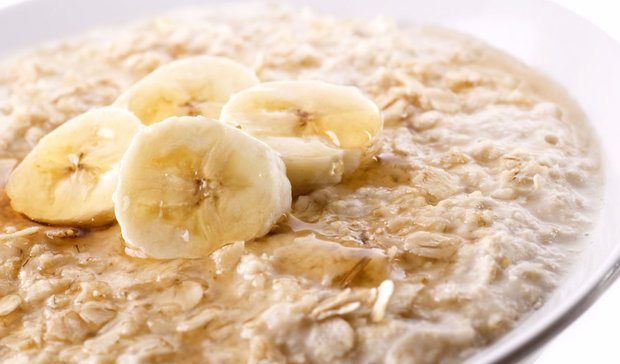
The ideal soup for the first days of feeding is vegetable broth. It contains large amounts of essential vitamins and minerals and is easy to digest and non-harmful.
After a few months, having already studied a little about the child’s reaction to certain foods, you can prepare soup with meat broth, for example, buckwheat soup with beef broth. Soup with noodles and eggs is also allowed if the baby reacts positively to both products.
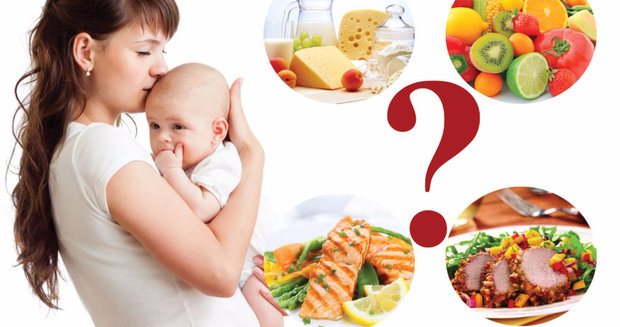
After six months, you can prepare lean borscht and other types of soups, excluding ingredients to which the newborn is allergic.
Bakery products
Many people completely refuse bread because they believe that it has absolutely no beneficial properties, but this is not so. You can introduce about 250 g of bread per day into your diet. It is worth paying more attention to white bread at the beginning; over time, you can slowly include products that are made from wholemeal flour.
After just a few weeks, you can start eating meat, since it is one of the main sources of protein, as well as calcium, magnesium and iron. The daily norm is 80-110 g.
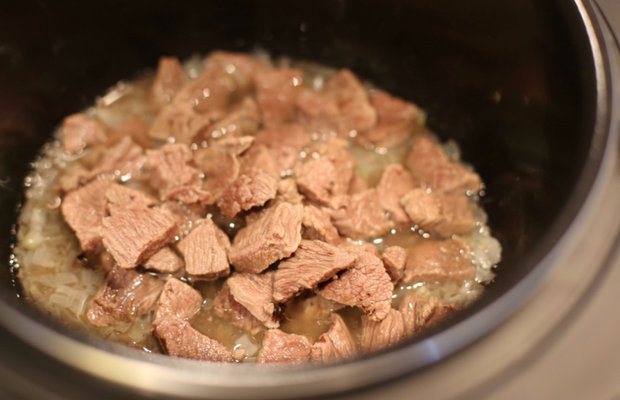
It is advisable to eat meat daily. Particular attention should be paid to the processing of meat; it is recommended to stew, boil or bake it. In this case, it is necessary to remove the crust, as it can cause allergies in the baby.
Allowed to eat: chicken, beef, pork, lamb, turkey. Other types of meat should be consumed less often because they are harder to digest. You can also introduce into the diet not only pure meat, but also offal; they are rich in microelements, which are very useful and sometimes surpass even meat in quality. But it is also recommended to boil them.
Many people recommend excluding milk and dairy products from the diet when breastfeeding in the first month, but this is wrong. It is worth paying attention to the freshness of the milk, its quality and naturalness; if everything is good, then you can drink the milk. In addition, it has many useful elements: potassium, phosphorus, calcium, vitamin D.
Vegetables are one of the most important elements in the diet of a nursing mother, so they can be consumed immediately after childbirth. Fresh vegetables should not be consumed in the first weeks; it is best to do this stewed or boiled, so they are easier to digest.
You can immediately cook potatoes, cauliflower, and zucchini. It is worth checking the child’s reaction to other vegetables, only then introducing them into regular use. So, it is worth checking all vegetables with bright colors - carrots, tomatoes, beets.
The question is often asked: what fruits can a nursing mother of a newborn eat, because this is a tasty treat that contains a lot of vitamins. To identify such fruits, 3 principles must be used:
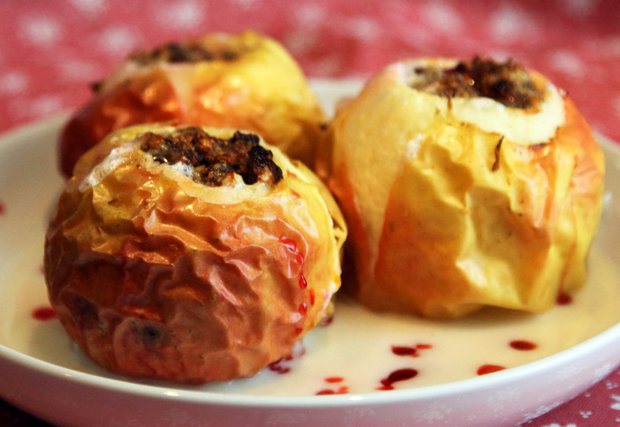
- Eat this season's fruits . This way they will be fresh and most likely natural.
- Eat fruits grown in your region. They are easier to digest and are well accepted by the body.
- Eat fruits that do not cause allergies in your baby . To do this, you need to gradually introduce them into the diet over 3 days and watch the child’s reaction.
It is believed that a couple of weeks after giving birth, it will be beneficial to eat apples, pears, peaches, apricots, seasonal berries and banana. But they should also be gradually and moderately introduced into the mother’s diet and first subjected to heat treatment, only over time gradually switching to fresh ones.
Drinks, especially those containing caffeine, can easily cause allergies and insomnia in a baby, but if you follow a few rules, they can be consumed. You can use chicory as a coffee substitute - it soothes and gives tone. If this is not suitable, you can also drink coffee, reducing the amount and making a large break before feeding.
Recommendations for use
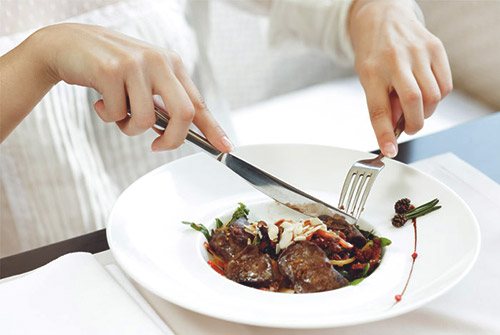
In order for lamb to be beneficial, you need to properly introduce it into your diet. The following recommendations will help you do this.
- Before eating lamb, you need to include low-fat varieties of beef, turkey, rabbit, and chicken in your menu. Be sure to monitor the child’s reaction.
- First you should cook the lamb meat broth. The first portion should be only 50 ml. Monitor the child for three days. In the absence of an allergic reaction and problems with the digestive system, you can increase the portion.
- Next, you can try boiled lamb. A piece should not exceed 50 g.
- If the baby is feeling well, eating lamb can be done regularly. A single serving can be up to 150 g; it is recommended to eat no more than 300 g per week.
- Boiled, baked, stewed meat with vegetables is best for a nursing woman. Meat with blood is prohibited during this period. With such a dish you can easily introduce an infection into the body.
- Minced meat is best used for food no earlier than 5 months. It should only be homemade. The purchased product contains preservatives, stabilizers, and other chemicals that are harmful to babies.
- Before cooking, the meat should be thoroughly washed, fat and ligaments should be trimmed off.
- It is better to use a carcass of lamb or young lamb under the age of 1.5 years. For steamed dishes, it is good to use brisket. You can cook, bake, stew pieces from the back. For minced meat, take a shoulder blade and a neck.
Prohibited Products
The list of prohibited foods for each mother will be individually built as the baby reacts to new foods, but in the first stages of development the following foods are strictly prohibited:
- Alcoholic drinks, sweet carbonated drinks.
- Strong coffee or very strong tea.
- Seafood, especially salted ones.
- Fatty and smoked meat of any kind.
- Exotic fruits and vegetables, with the exception of banana.
- Fried foods.
- Mushrooms.
- Canned food.
It is worth introducing the baby to the rest of the food and watching his reaction; introducing a new product no more than once every 3 days, this way you can definitely see if an allergy has appeared.
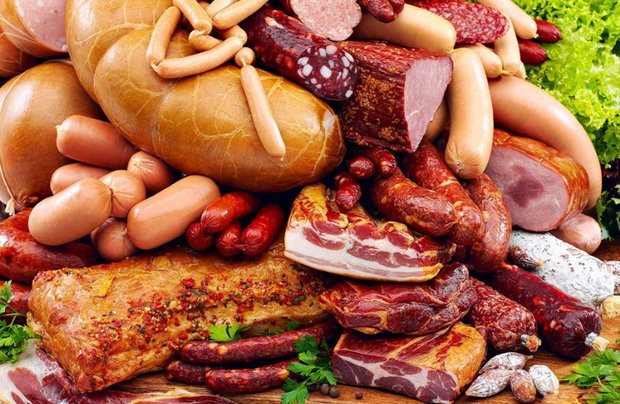
Lamb for children: from what age
Where lamb dishes are included in the national cuisine, children begin feeding it early: from 7–9 months. Pediatricians often criticize this tradition, recommending later dates: from 1 year - for healthy children, from 2-3 years - with a weakened digestive system or other disorders.
To avoid possible harm, it is advisable to offer children under 3 years of age only special purees without additives or dishes made from homemade meat: dairy lamb or young lambs under 1 year of age. To get acquainted with the product, 0.5–1 tsp is enough. puree. It is not advisable to combine it with other dishes to make it easier to track the body’s reaction. In the absence of allergies, the portion is increased to 40 g, after 3-4 months - to 60 g.
- Children 2–3 years old are recommended to eat lamb no more than once a week.
- At 4–5 years old, you can offer the product twice a week or replace lamb with another type of meat if the child does not like it.
It is not advisable to offer mature meat to a child under 5 years of age. And the old thing is that animals that have passed the 3-year mark should not be eaten even by adults. Children under 7 years of age can eat fried lamb. Excess fat and crispy crusts overload the stomach and can cause colic and stool disorders.
Soups with rich broth should also be postponed until this age. Preschoolers should be offered dishes with minced meat, steamed, boiled, baked, containing a minimum of fat. Meatballs, meatballs, manti, stewed meat with vegetables are healthy. The best time for lamb is lunchtime.
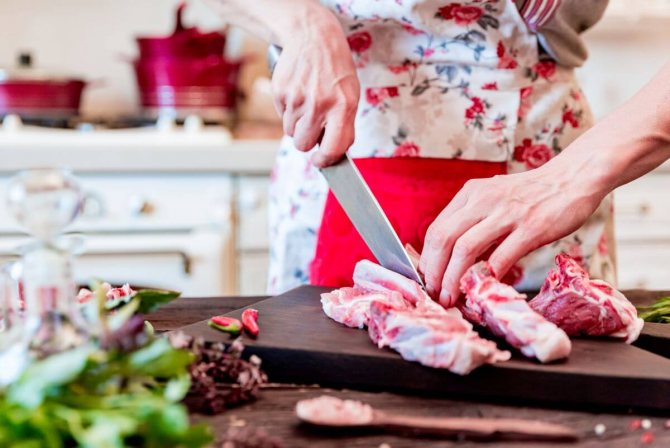
Features of nutrition in the first month of a child’s life
In order for the mother’s body to quickly recover and the child to develop healthy, it is necessary to adhere to a special diet that excludes some foods that can cause allergies or discomfort in the baby.
Nutrition should be balanced so that it contains the necessary proteins, fats and carbohydrates and a sufficient amount of microelements. It is advisable to eat about 4 times a day, but if you want more, you can increase this amount. You should also drink a lot to keep your body hydrated.
If you exclude brightly colored foods, those that contain an allergen, and gradually introduce new foods, the diet will not seem very strict and will only be beneficial.
